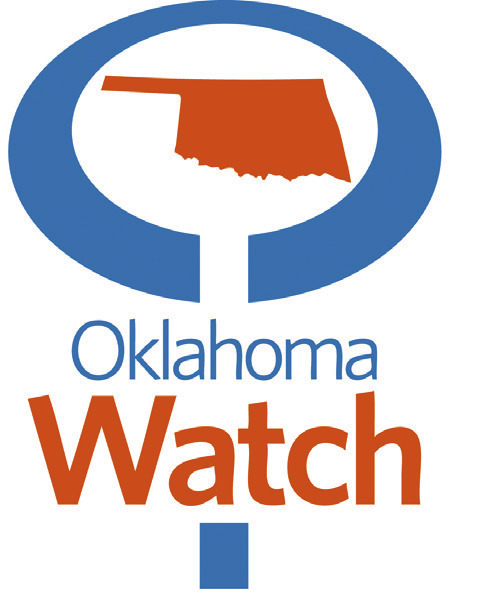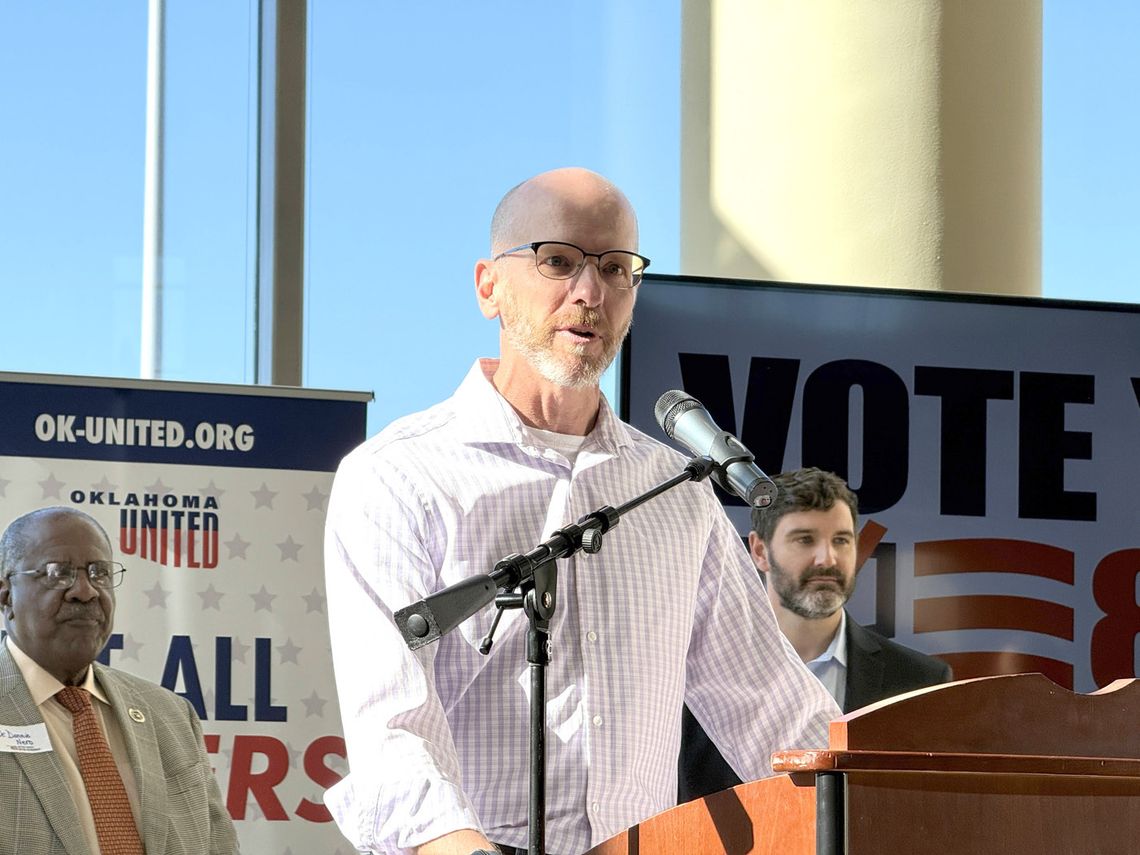Increase voter turnout. Chip away at political polarization. Make elected officials more accountable to their constituents.
Backers of open primaries believe they can accomplish all of the above via State Question 835, a citizen-led initiative petition filed Monday afternoon with the Oklahoma Secretary of State’s office.
The proposed constitutional amendment places all congressional, statewide, county and state legislative candidates, regardless of political affiliation, on the June primary election ballot. The top two candidates would advance to the November general election ballot, rendering the August runoff unnecessary.
A candidate’s party affiliation would remain listed next to their name, said A.J. Griffin, a former Republican state senator who spoke in favor of State Question 835 at a Tuesday press conference. If enacted, the changes would be implemented during the 2028 election cycle.
“People have lost trust and confidence in our government,” Griffin said of Oklahoma’s persistently low voter turnout. “That is not a problem that can be ignored. In fact, it’s a poison creeping through our system and the cure is election reform in the form of an open primary system.”
While a record number of Oklahoma voters cast ballots on November 5, the participation rate among registered voters dipped nearly 5% compared to 2020. An analysis by researchers from the University of Florida’s Election Lab found Oklahoma had the lowest voter turnout in the U.S. in the 2024 presidential election.
Nearly 70% of state legislative races were decided before the November election, either going uncontested during the April filing period or settled in a single-party primary election. The percentage of uncontested state legislative races has continued to rise since 2018, when a record number of candidates filed to run for office during the statewide teacher walkout.
Oklahoma’s current primary system is partially closed, with political parties receiving the option to open their primaries to independents. In recent election cycles, Republicans and Libertarians have kept their primaries closed while Democrats have allowed independents to participate.
Margaret Kobos, founder of the election reform group Oklahoma United, said the proposed open primary system mirrors how municipal candidates for mayor and city are elected. Several municipal leaders, including Oklahoma City’s mayor, David Holt, and former Tulsa mayor G.T. Bynum, have endorsed a statewide open primary system.
“This is how we voted in high school, and this is how we vote in every town and city in the state,” Kobos said. “This is an Oklahoma solution to an Oklahoma problem.”
Anthony Stobbe, an independent voter and U.S. Coast Guard veteran from Edmond, is one of the three proponents petitioning to get an open primary question on the ballot. He called the state’s current primary system undemocratic because independents, which comprise nearly 20% of Oklahoma’s electorate, aren’t guaranteed the right to participate in the primary process.
“The current system says to me and numerous others that your opinion doesn’t matter,” he said. “To add insult to injury, my taxpayer dollars and your taxpayer dollars pay to fund the very election I can’t vote in.”
State Question 835, which must get clearance from the Oklahoma Supreme Court and receive 172,993 valid signatures to reach the ballot, will be the first initiative petition to operate under legislation benefiting challengers. House Bill 1105 increases the protest period for initiative petitions from 10 to 90 days, while Senate Bill 518 increases the time to challenge the signature count from 10 to 20 days.
Kobos said State Question 835 organizers are aware of the changes and are confident they have enough time to get the question before voters in 2026.
“It will be a learning process for all of us,” Kobos said of Oklahoma’s initiative petition process, which is among the most stringent in the nation in states that allow direct democracy. “But we will overcome those challenges and get this in position for Oklahomans to sign.”
The initiative petition is already facing pushback from Republican officials and conservative groups. The Oklahoma Council of Public Affairs, a right-leaning think tank based in Oklahoma City, issued a statement on Tuesday afternoon calling the proposed system a “Californiastyle” model that would take power away from conservatives.
Lieutenant Gov. Matt Pinnell, rumored to be a possible 2026 gubernatorial candidate, called the measure unnecessary and welcomed independents and Democrats to register as Republ ic a ns to help choose the party’s candidates.
“At best, the push to mandate open primaries is a solution in search of a problem, and at worst, it is a thinly veiled attempt to weaken Republican voters in choosing the nominees to represent our Party,” Pinnell said in a statement.
Similar ballot initiatives fared poorly in Republicancontrolled states on Nov. 5. In South Dakota, 65.6% of voters rejected an open primaries ballot question. Nearly 70% of Idaho voters checked no on Proposition 1, which sought to end open primaries and implement ranked choice voting.
Alex Weintz, a spokesperson for the Yes on 835 campaign, said the group has tailored the initiative for Oklahoma’s electorate and isn’t discouraged by those results.
“Our early conversations and grassroots work has demonstrated a huge amount of support across the state,” he said. “We believe we’re starting in a position of strength and that this is going to be a popular measure.”
“Oklahoma Watch, at oklahomawatch. org, is a nonprofit, nonpartisan news organization that covers public-policy issues facing the state.”




